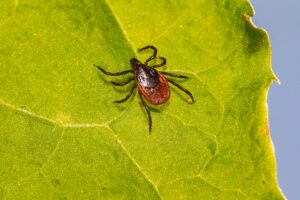& Pest Inspection Estimate! 800-332-BUGS (2847)
Tick Diseases Rising Steadily, Warns CDC
 Spending time outdoors should be an experience that increases our health and well-being. But it’s not as carefree and rejuvenating as we’d like so long as we have to share our habitat with ticks. Ticks are much more than a seasonal nuisance — they are a dangerous threat to our welfare, causing diseases with long-term implications.
Spending time outdoors should be an experience that increases our health and well-being. But it’s not as carefree and rejuvenating as we’d like so long as we have to share our habitat with ticks. Ticks are much more than a seasonal nuisance — they are a dangerous threat to our welfare, causing diseases with long-term implications.
The Centers for Disease Control (CDC) is reporting an increase in their estimate of tick-borne diseases. Steadily on the rise, the new estimate is approximately 476,000 new cases of Lyme disease annually in the U.S., up from 300,000.
Let’s Talk Tick Prevention
Now that the weather is warmer and we’re enjoying the outdoors more, our exposure to ticks and the harm they cause is greater. Here are some steps you and your family can take to reduce exposure to tick bites:
- Mow your lawn often and keep leaves raked.
- Clear your yard of tall grasses and brush, especially around the edge of your lawn.
- Surround your patio and playground areas with a barrier of gravel to keep ticks from traveling to these areas.
- Wear long pants, long sleeves, and closed shoes. Wearing light colors is best for being able to spot ticks on you.
- Use EPA-registered insect repellent containing 20% DEET on adults and children over three.
- Treat clothing and hiking gear with products that contain permethrin, which can remain active through a few washings.
- Try to walk in the center of trails.
- Inspect yourself, children, and pets thoroughly after spending time outdoors, as well as clothing, backpacks, and other gear. Once a tick has latched to a person, it needs 36-48 hours to transmit disease, so thorough and immediate inspections will go a long way to preventing disease.
Professional Tick Prevention
Should you consistently find a large number of ticks in your yard, give Ecola a call at 800-471-BUGS (2847). An Ecola specialist will provide a free pest inspection, including potential problems and treatment options. Don’t let the threat of ticks and Lyme disease keep you and your family from enjoying your yard this summer.
